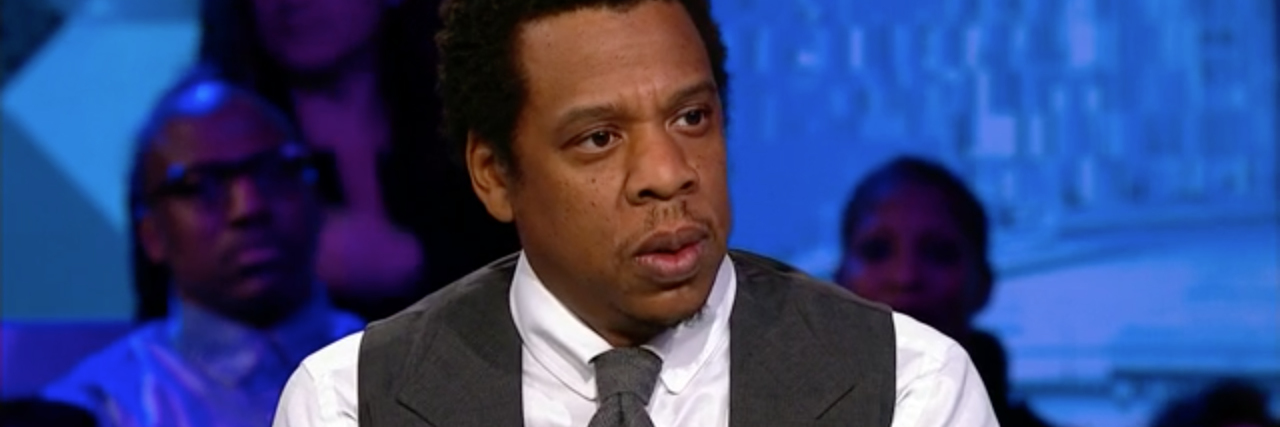Jay-Z was the inaugural guest on CNN’s new weekly “The Van Jones Show.” During the 40-minute interview, Jay-Z appeared deeply introspective, and even courageously vulnerable, reflecting a transformation that he credits to therapy, which has helped him to unlearn a lifetime of internalized toxic masculinity.
Asked how he overcame the pervasive cultural stigma of therapy in Black communities, he responded, “You grow, and you realize the ridiculousness of the stigma attached to it. It’s like, what? You’re just talking to someone about your problems, you know? And I think… it should actually be in our schools.”
I perked up and rewound the clip a couple of times just to hear him say that again and again.
I immediately thought back to my first job as a therapist, working in schools, and remembered how even few educators and mental health professionals understood the nature of my work. School-based therapy is just not on most people’s radar, and school mental health always seems to fall on the periphery of discussions about education and mental health.
Jay-Z, however, not only named a plethora of reasons why schools need therapists, but he also touched on some scientific reasons why stress takes an inordinate toll on children’s mental health.
“You know, children have the most going on,” he continues. “Their mind is not fully developed…[then they’re] teenagers, and [they’re] drinking and doing damage to their brain… All these things are happening to you, and you don’t have the language to navigate it.”
Clearly, Jay-Z has done his homework.
Study after study shows that children’s developing brains are highly malleable, for better or worse.
While this malleability allows children to learn and develop neural networks more quickly than adults, their pliable brain architecture is also more likely to incur indelible damage from chronic stress and trauma. Until the prefrontal cortex — the brain region responsible for executive functioning and emotional regulation — fully develops around age 25, kids have a limited capacity to self-regulate emotions. They also struggle more than adults to process distress rationally and verbally, and they’re more prone to acting out instead.
As Jay-Z went on to mention how children’s underdeveloped cognition also has implications for their level of social-emotional awareness, unfortunately making high rates of bullying seem inevitable unless the adults around them model empathy.
“How can you know [that] when a guy’s bullying you, all you have to do is say, ‘Man, are you OK?’” he asked.
Just imagine if every student in America could attend a school with a therapist tasked solely with the work of teaching them about emotional and social awareness in the midst of bullying, or any other form of adversity. How much more empathetic would our society be?
From firsthand experience, I can attest that school-based therapists everywhere would agree with every single one of Jay-Z’s points about why therapists belong in schools. I can think of a few more good reasons to add to that list, too:
1. School-based therapy is accessible and convenient.
Nearly all communities have neighborhood schools, and children spend the majority of their time there. So, school-based therapy makes services convenient, both for students and working families. Not to mention, almost all school-based therapy programs offer free individual, group and family therapy.
2. School-based therapy increases students’ academic motivation.
Mental health concerns often lie at the root of school problems. But school-based therapy offers a wraparound support system that situates treatment within a specific learning context and school community. Issues with teachers or other students, for example, can be resolved on-site. As a result, student engagement usually improves, while teacher burnout decreases.
3. School-based therapy offers an inclusive and safe space.
Students from marginalized communities and underrepresented backgrounds are more likely to experience bullying, and therapy can serve as a place to talk through these stressors, as well as any other identity-development issues. For LGBTQ+ students, in particular, the fact that school-based therapy is confidential and does not require parental consent is a big draw.
School-based therapy also has the potential to buffer minoritized students from the school-to-prison pipeline, since LGBTQ+ students and students of color, among other marginalized groups, are frequently criminalized for defending themselves against bias-related bullying.
4. School-based therapy eradicates mental health stigma.
Schools play an important role in creating a stigma-free society. School-based therapy does just that by promoting therapy as a pathway for wellness, not a medical service that pathologizes students with illness. School-based therapists are also keen on dissociating themselves from disciplinarians, and most schools advertise therapy as a voluntary program. Granted with the autonomy to start or stop therapy at any time, students feel no shame about giving it a try. Many of the students I worked with even recommended therapy to their family and friends after the experience!
On behalf of all the educators and mental health professionals doing this work, we thank you for putting some respect on our profession, Jay-Z. We hope others jump on the bandwagon soon.
We want to hear your story. Become a Mighty contributor here.
Image via CNN

